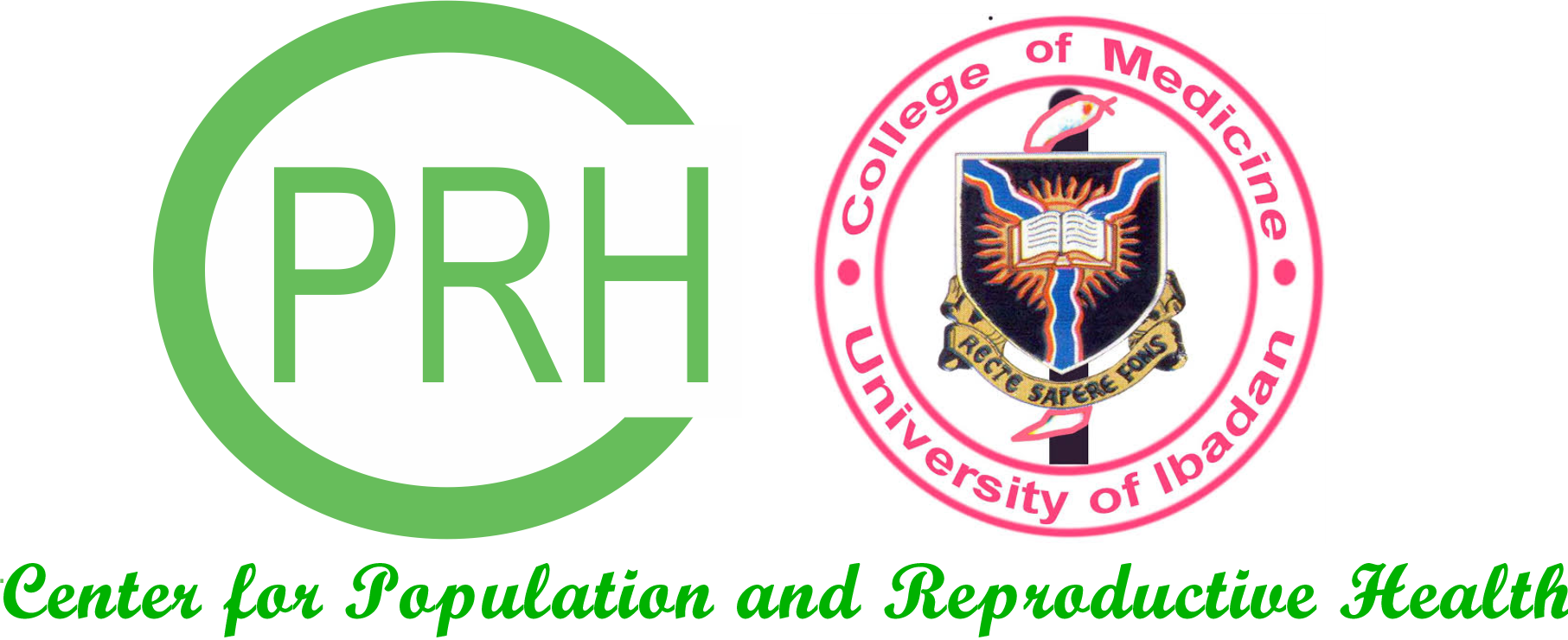Since inception, the multidisciplinary nature of CPRH has enabled it to provide comprehensive cutting-edge expertise on issues relating to population, sexual and reproductive health and rights some of which include but are not limited to :
Training on a wide range of reproductive and neonatal health issues (eg) neonates.
Conducting trainings on strategic leadership for health workers and managers.
CPRH has a good complement of consultants who are available to participate from the Departments of Obstetrics and Gynecology Health Promotion and Education, Epidemiology, Biostatistics and Demography, Community Medicine, Institute of Child and Adolescent Health Sociology, among others combined to provide a wealth of experience and expertise that will effectively execute the tasks detailed therein.
The team has conducted trainings for Federal and States’ Ministry of Health in Nigeria as well as many international agencies such as UNFPA, UNICEF, DFID, World Bank and WHO. In 2007, the success story recorded from the strengthen EmONC programs conducted for UNFPA in Northwestern Nigeria tagged “Kasoke EOC training” meaning “Nullify maternal Mortality” in the state of Katsina, Sokoto, and Kebbi” by significant reduction in MMR and improve quality and utilization of care was partly responsible for CIDA – Canadian International Development Agency to release further funds to UNFPA in 2008 to April 2009 for expansion to other six states of Nigeria by our team.
CPRH under the leadership of Professor Oladosu A. Ojengbede, facilitated the introduction of emergency obstetric and neonatal care training into Nigeria health care system in 1991, and has since been actively conducting training for Governments and Organizations within and outside of Nigeria with staffs drawn mostly from CPRH. We also played active roles in the formulation of policy documents and training manuals on EmONC for all cadres of health care providers in Sub Saharan Africa. Apart from this, all the member of this training team are Master trainers/Consultants that have long term experience to share from their training skills and practical experience on the field for over the past 15years.
Over the years, CPRH has been in the forefront of translation of research into practice and has deployed this principle to improving the quality of EmONC. The Centre along with her Partners pioneered the use of Non-pneumatic Anti-shock garment (NASG) in the world especially in Sub-Saharan Africa. This innovative tool bridge the gap of blood transfusion challenges that often result in fatality from obstetric haemorrhage – the leading cause of maternal mortality. In addition, CPRH team actively participated in the systematic introduction of magnesium sulphate in several states in Nigeria through advocacy, guest lectures and hands-on training of health care providers for the management of pre-eclampsia/eclmapsia – the second leading cause of maternal mortality in Nigeria. CPRH also participated in the drafting of the national protocol for magnesium sulphate by the Federal Ministry of Health of Nigeria.
Moreover, CPRH has championed the introduction of modules in Quality of Care and Strategic Leadership and Management into the framework for EmONC training in order to mainstream teamwork, share vision and accountability into health care delivery system.
Induction Meeting
The CPRH management had series of planning meetings to deliberate and plan towards the project. Subsequently, the local resource person (LRPs) from the states served as mentors for the project in their respective states. It was concluded that there would be two of such persons in each State with the selection criteria being that one must be an Obstetrician/Gynaecologist while the other must be a senior LSS trained Nurse/trainer. The selected LRPs were invited for an induction meeting at the Centre for Population and Reproductive Health, Ibadan with the purpose of providing them with details about the project, their expected roles and responsibilities as well as other logistics. The induction meeting was held with 7 of the LRPs in attendance. Presentation sessions were made by facilitators on overview of the project, current concepts of EMONC training, Process of mentoring, data collection etc.
